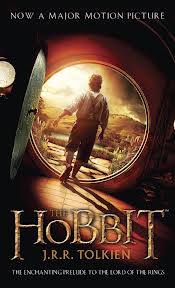‘Lord of the Rings’ Expert Reveals Deeper Message in ‘The Hobbit’
Overcoming vices and evil, or “dragons,” in The Hobbit is not just the result of outward actions but the inner changes that have occurred.
“If I speak at a college about unlocking the Gospel, fifteen people will show up,”  said Joseph Pearce, author of the new book, Bilbo’s Journey: Discovering the Hidden Meaning of The Hobbit. “But if I speak about unlocking the ‘Lord of the Rings,’ 300 show up.” And so, the English-born Tolkien scholar and writer of fifteen books begins with dragons, dwarves, and elves, as he unlocks the deeper meaning behind J.R.R. Tolkien’s classic novel “The Hobbit.”
said Joseph Pearce, author of the new book, Bilbo’s Journey: Discovering the Hidden Meaning of The Hobbit. “But if I speak about unlocking the ‘Lord of the Rings,’ 300 show up.” And so, the English-born Tolkien scholar and writer of fifteen books begins with dragons, dwarves, and elves, as he unlocks the deeper meaning behind J.R.R. Tolkien’s classic novel “The Hobbit.”
Pearce’s book coincides with the anticipated release of Peter Jackson’s prequel movie, The Hobbit: An Unexpected Journey opening in theaters December 14. Tolkien’s Lord of the Rings trilogy and The Hobbit are essentially a fantasy story of humanity as seen through a Catholic lens. “People put their guard up against Christianity,” said Pearce, “but these books get beyond that. Everyone who reads them will be more disposed to Christianity.”
In Bilbo’s Journey, Pearce intertwines Tolkien’s classic tale with an explanation of the profound Christian meaning behind it. Without uncovering the rich imagery, much of the story’s deeper meaning is lost to many. For instance, Pearce explains that providence and grace are presented as luck but at the end of Bilbo’s quest, Gandolf asks him, “You don’t really suppose, do you, that all your adventures and escapes were managed by mere luck?”
Pearce states that Bilbo Baggins represents us all. “He shows us how to grow in virtue and courage and become who we are meant to be,” he said. “It is the Christian journey of self-sacrifice out of love for others, and abandonment to providence and grace.”
At the beginning of The Hobbit, Bilbo is too attached to his possessions. He is a creature of comfort addicted to the creature comforts. Though he finds it difficult to leave his home and possessions behind, his journey allows him to discover the greater meaning and purpose of life. According to Pearce, “The Hobbit illustrates the priceless truth that we only become wise men (homo sapiens) when we realize that we are pilgrims with a purpose.”
Overcoming vices and evil, or “dragons,” in The Hobbit is not just the result of outward actions but the inner changes that have occurred. Bilbo’s Journey gives readers the opportunity not just to better enjoy the movie, but also to apply its lessons to their lives as Christians.
Help Make A Difference By Sharing These Articles On Facebook, Twitter And Elsewhere:
